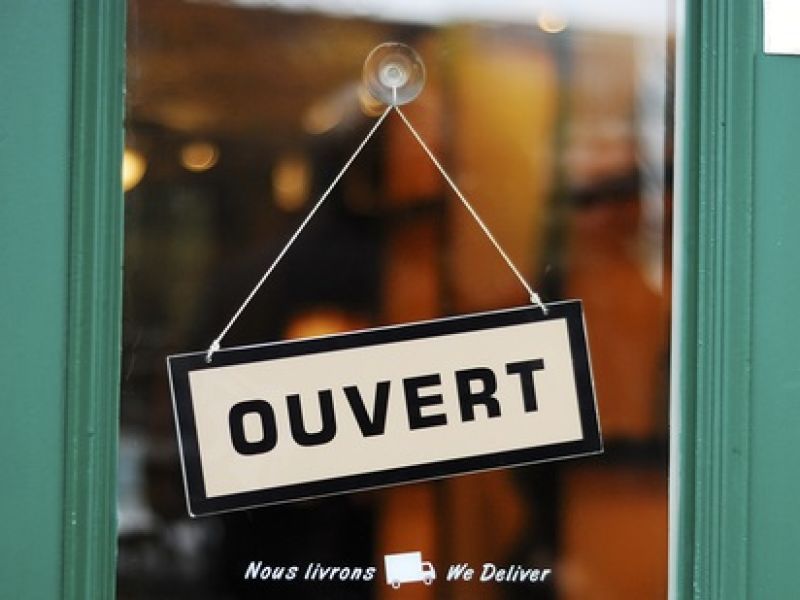Most business owners with EU links know only too well the upheaval that Brexit will cause their companies. Those who trade with the EU have to make sure their EORI numbers and documents are in order before the transition date ends, and most entrepreneurs are also getting their heads around how VAT registration will change.
Related article: The EORI number explained: what it is and why you need it to trade
Since 2015 businesses in the digital or electronic services - for example those that supply downloadable software and apps or cloud services that hold information, photos or videos – have been using the VAT MOSS system (VAT Mini One Stop Shop) to register their VAT on sales to EU customers, using the union-scheme for EU based suppliers.
But from January 2021, these UK businesses will now have to use the non-union scheme for suppliers outside the EU. If they do not have a registered address or a fixed business base, office or shop in the EU, they will be required to register in an EU country of their choice, and will be allocated an EU VAT Number.
Those UK businesses who are lucky enough to have a registered address or fixed business base in the EU, will still be able to use the union scheme and use an existing VAT registration to account for VAT on supplies to EU consumers. Their MOSS Identification VAT Number will be the same as the associated domestic VAT number. (Click here for more information on how to get a registered address in an EU country or how to open a serviced or virtual office in the EU).
If a business has a fixed base in more than one EU country, the business owner can choose the one they wish to be identified in for Union MOSS. But once that choice has been made, they are bound by that decision for the rest of that year and the following two years (so think carefully about which country is best!)
Related article: How to set up a VAT number in a foreign country for ecommerce entrepreneurs
From 1st July 2021, in order to modernise VAT for cross border e-commerce, the non-union scheme is being extended to apply to all cross-border B2C supplies of services. If a supplier opts to use the non-union scheme, they must use the scheme to declare and pay VAT for all their B2C supplies of services in the EU (these supplies should not be declared through separate local registrations).
This is a list of some of the B2C services examples which can be reported under the non-union Scheme:
- Accommodation services
- Admission to cultural, artistic, sporting, scientific, educational, entertainment events, such as fairs and exhibitions
- Transport services
- Services of valuation and work on property
- Ancillary transport activities such as loading, unloading or handling
- Transport hire
- Supply of restaurant and catering services on board ships, aircraft or trains etc.
From 1st July 2021, the union scheme will also be extended to apply to all types of B2C services and sales of goods at a distance. The good news is that the distance sales thresholds will be abolished.
Goods leaving the UK post-Brexit
All goods leaving the UK from 1 January 2021 will be a zero-rated export. Some EU customers are insisting that the goods are delivered duty paid (DDP) and that the UK supplier becomes the importer of record instead of the other way round. This is because many EU customers don’t want to have to deal with all the import formalities in their own country such as entry declarations, VAT and duty.
The UK supplier will need to be VAT registered in the destination country so that they can deal with the import formalities and then the domestic onward supply to their EU customer. If they have no choice but to accept DDP terms, then they should consider appointing a freight agent to deal with the import formalities on their behalf.
They will also need to submit a VAT registration request in the destination state and prepare VAT returns in that EU member state from that time onwards. For more information on how to do this, please see this article How to set up a VAT number in a foreign country for ecommerce entrepreneurs.
Goods arriving in the UK post-Brexit
Goods entering the UK will be classed as an import from 1 January 2021. Postponed accounting will be introduced for worldwide imports. This means that VAT is not payable by a VAT-registered business at the time goods arrive in the UK. Entries are instead made by the UK importer on their relevant VAT return. Customs duty will be payable at point of entry.
The key aspect for the cross-border selling of goods is initially the location of the goods at the point of sale. Many UK online retailers would be storing their goods in UK warehouses. When a sale is processed through the website, the goods will be dispatched to the customer’s location. Identifying the customer and the delivery address will be crucial to determine the VAT treatment of the sale.
The main piece of advice for any business owner in these uncertain times is to get a good accountant who is familiar with cross-border VAT payment services. Making sure you have a fully qualified accountant who is up to date with all the new changes is important so you can fully focus on adapting to the other business challenges that may come up in light of Brexit.
If you need full information on these changes, you can click on the links below to the official European Commission website.
Information on the Union and Non-Union MOSS Schemes: https://ec.europa.eu/taxation_customs/business/vat/telecommunications-broadcasting-electronic-services/
A summary of the changes for modernising VAT for cross-border e-commerce: https://taxation-customs.ec.europa.eu/taxation-1/value-added-tax-vat_en
And for more information on how to register your company in an EU country, or for more details on VAT Services or how to open a serviced or virtual office in the EU, feel free to click on the links or call us on 0033 (0)1 53 57 49 10 or email us from our contact page and we’ll be happy to help. You can also download our free guides on how to open a business in EU member states such as France and Ireland below.







